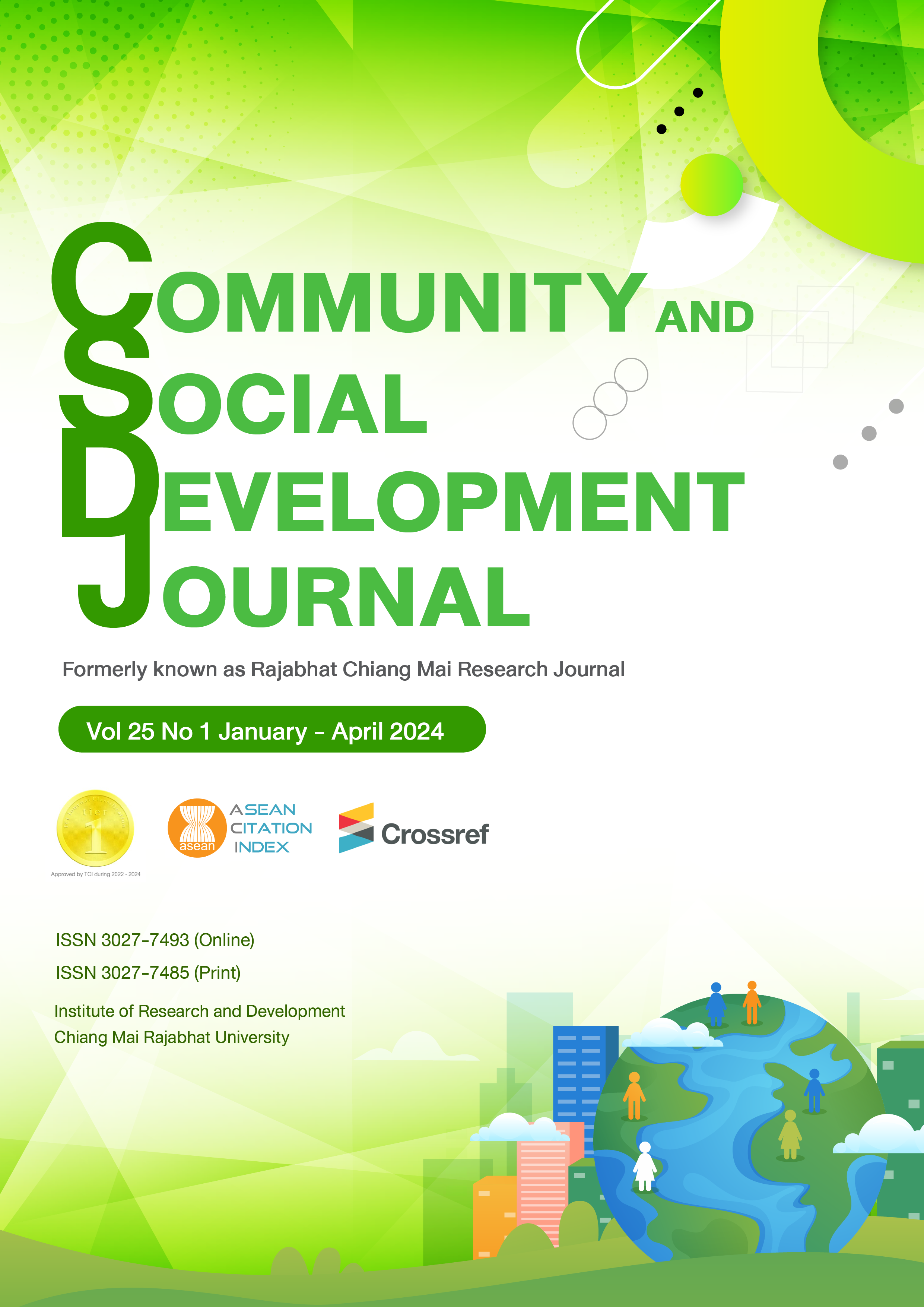Perception of Customer Experience Towards Customer Loyalty in Online Food Delivery Services in Thailand: Exploring in Generation Z
DOI:
https://doi.org/10.57260/rcmrj.2024.266141Keywords:
Customer experience, Customer loyalty, Online food delivery serviceAbstract
The relationship between customer experience towards customer loyalty in online food delivery services in Thailand has been the subject of a few studies on customers in Generation Z. This study aims to explore the effect of the perception of customer experience, customer satisfaction, and customer loyalty, focusing on Generation Z in online food delivery service. The samples are randomly selected from 400 respondents from Generation Z in Thailand. This analysis uses quantitative research and statistical assessment, including descriptive statistics, Exploratory Factor Analysis (EFA), and Linear Regression Analysis. The result of EFA indicates that the perception of customer experience is identified by 3 factors: namely 1) food quality, 2) convenience and reliability of service, and 3) price. Moreover, the linear regression analysis shows that food quality, convenience and reliability of service, and price are significant motivating factors of customer satisfaction. As a result, customer satisfaction has a positive effect on customer loyalty.
Downloads
References
Bewicke, H. (2023). Gen Z consumer behavior: What you need to know. Retrieved from https://www.talon.one/blog/gen-z-consumer-behavior-what-you-need-to-know
Fitch Solutions. (2020). Thai Food Delivery Market Taking Off Bangkok Post. Retrieved from https://www.bangkokpost.com/business/2019015/thai-food-delivery-market-taking-off
Ganapathi, P., & Abu-Shanab, E. A. (2020). Customer satisfaction with online food ordering portals in Qatar. International Journal of E-Services and Mobile Applications, 12(1), 57–79. DOI:10.4018/IJESMA.2020010104
Henson, R. K., & Roberts, J. K. (2006). Use of exploratory factor analysis in published research: Common errors and some comments on improved practice. Educational and Psychological Measurement, 66(3), 393-416. DOI: 10.1177/0013164405282485
Jain, R., Aagja, J., & Bagdare, S. (2017). Customer experience – a review and research agenda. Journal of Service Theory and Practice, 27(3), 642–662. DOI: 10.1108/JSTP-03-2015-0064
Jun, K., Yoon, B., Lee, S., & Lee, D-S. (2022). Factors Influencing Customer Decisions to Use Online Food Delivery Services during the COVID-19 Pandemic. Foods, 11(1), 1-15. DOI: 10.3390/foods11010064
Lemon, K. N., & Verhoef, P. C. (2016). Understanding Customer Experience Throughout the Customer Journey. Journal of Marketing: AMA/MSI Special Issue, 80(6), 69-96. DOI: 10.1509/jm.15.04
Liu, H. (2019). Factors positively influencing customer satisfaction of online food delivery services of customers in Bangkok and its vicinity. (Master of Business Administration, Bangkok University).
Mintel Group Ltd. (2023). The future of consumer behavior in the age of Gen Z. Retrieved from https://www.mintel.com/consumer-market-news/the-future-of-consumer-behaviour-in-the-age-of-gen-z/
Mordor Intelligence. (2023). Thailand Foodservice Market Size & Share Analysis – Growth Trends & Forecasts (2023 - 2028). Retrieved from https://www.mordorintelligence.com/industry-reports/thailand-foodservice-market?gclid=Cj0KCQjwmtGjBhDhARIsAEqfDEcZ-EhPn2B9fnEcD7gsQIVEULjMNrfktfBWcoPfGfQUfPeacpCF-3UaAofcEALw_wcB
Saad, A. T. (2020). Factors affecting online food delivery service in Bangladesh: An empirical study. British Food Journal, 123(2), 535–550. DOI: 10.1108/BFJ-05-2020-0449
Sjahroeddin, F. (2018). The Role of E-S-Qual and Food Quality on Customer Satisfaction in Online Food Delivery Service. Industrial Research Workshop and National Seminar, 9, 551–558. DOI: 10.35313/irwns.v9i0.1097
Tandon, U., Kiran, R., & Sah, A. (2017). Analyzing customer satisfaction: users’ Perspective towards online shopping. Nankai Business Review International, 8(3), 266–288. DOI:10.1108/NBRI-04-2016-0012
Yeo, V. C. S., Goh, S. K., & Rezaei, S. (2017). Consumer experiences, attitudes, and behavioral intention toward online food delivery (OFD) services. Journal of Retailing and Consumer Services, 35, 150–162. DOI:10.1016/j.jretconser.2016.12.013
Downloads
Published
How to Cite
Issue
Section
License
Copyright (c) 2024 Community and Social Development Journal : CSDJ Formerly khows as Rajabhat Chiang Mai Research Journal

This work is licensed under a Creative Commons Attribution-NonCommercial-NoDerivatives 4.0 International License.
1. Articles, information, content, images, etc published in the “Community and Social Development Journal” are copyrighted by the Community and Social Development Journal, Chiang Mai Rajabhat University. In order to properly distribute the articles through print and electronic media, the authors still hold the copyright for the published articles under the Creative Commons Attribution (CC BY) license, which allows the re-distribution of the articles in other sources. References must be made to the articles in the journal. The authors are responsible for requesting permission to reproduce copyrighted content from other sources.
2. The content of the articles appearing in the journal is the direct responsibility of the article authors. The editorial board of the journal does not necessarily agree with or share any responsibility.














